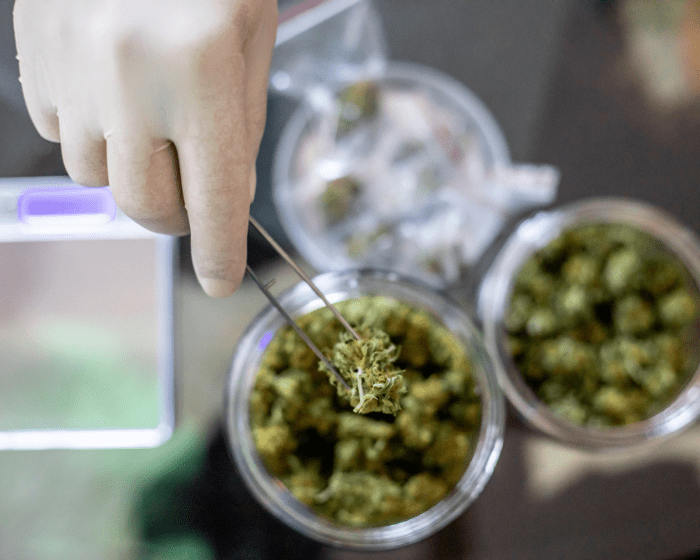
The U.S. House of Representatives on April 1 approved a bill to remove marijuana from the federal list of controlled substances and eliminate criminal penalties associated with possession and distribution.
The Marijuana Opportunity Reinvestment and Expungement (MORE) Act passed 220-204 with mostly Democratic support, although three Republicans voted for the measure and two Democrats opposed it.
The House had passed a similar version of the MORE Act in December 2020. The Senate, then controlled by Republicans, never brought it to a vote.
Why MORE Isn’t a Legalization Bill
This act would not make cannabis legal across the nation. Instead, it would end federal prohibition. Legality would be decided at the state level.
As Rep. Sheila Jackson Lee (D-TX) said to members of the House Judiciary Committee in October 2021: “This does not mean that marijuana would now be legal in the entire United States. It will simply remove the federal government from the business of prosecuting marijuana cases, and should leave the issue of legality to the individual states.”
The MORE Act would:
• remove marijuana from the federal list of controlled substances
• eliminate criminal penalties associated with possession and distribution • impose an 8 percent tax on cannabis products • allow some cannabis-related convictions to be expunged • press for sentencing reviews
• include cannabis businesses in Small Business Administration loans and services
• set standards for cannabis businesses
The bill’s sponsor, Jerrold Nadler (D-NY), described the MORE Act as: “long overdue legislation that would reverse decades of failed federal policies based on the criminalization of marijuana.”
Additionally, the bill would lower the costs of incarceration and enforcement for cannabis-related crimes while increasing government revenue with a new tax. Thus, the act could reduce the federal deficit by nearly $3 billion over the next decade, according to an estimate from the Congressional Budget Office.
Will the Senate Pass It This Time?
It’s not clear whether the current version of the bill will pass the Senate.
Senate Majority Leader Chuck Schumer (NY) has voiced support for the bill, but he and other Senate Democrats Cory Booker (NJ) and Ron Wyden (Ore.) are reportedly preparing their own legalization bill to release later this month. The senators released a discussion draft of their Cannabis Administration and Opportunity Act last July. Like the MORE Act, CAOA would remove cannabis from the federal list of controlled substances, put restorative measures in place to benefit communities that were unfairly targeted by past policy and enforcement and put each state in charge of its own cannabis laws.
A third bill, the States Reform Act sponsored by Rep. Nancy Mace (R-SC), also seeks to tax and regulate cannabis, reports Marijuana Moment.
Would Biden Sign It?
It’s also unclear whether President Joe Biden would sign any of the above bills.
During a press briefing after the vote last Friday, White House press secretary Jen Psaki said Biden had previously acknowledged that the county’s current marijuana laws are not working.
“He agrees that we need to rethink our approach,” Psaki said, “including to address the racial disparities and systemic inequities in our criminal justice system, broaden research on the effects of marijuana and support the safe use of marijuana for medical purposes.”
She did not directly address whether he supports the MORE Act, saying, “We look forward to working with Congress to achieve our shared goals and will continue having discussions with them about this objective.”
Biden has said he isn’t in favor of recreational adult cannabis use, but has reportedly said he’s in favor letting states set their own policies.







































